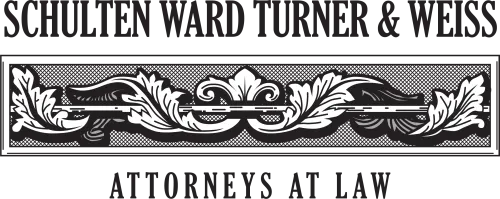What Is Trade Secret Litigation?
A company may choose to protect its proprietary and confidential information from unauthorized use by third parties. This confidential information, also known as trade secrets, is a valuable asset critical to the company's competitive advantage and is not common knowledge to the public. Hence, the need for trade secret litigation.
Trade secrets include:
Formulas and patterns
Technical information
Methods and techniques
Compilations and processes
Programs
Internal business information
They differ from other types of intellectual property like patents, copyrights, and trademarks.
Companies protect their trade secrets through business and commercial litigation and prevent trade secret theft or misappropriation by employees, vendors, and other third parties. Our commercial lawyers set up mechanisms to identify potential theft and breaches in confidentiality or non-compete agreements to preserve our client's competitive position.
Our attorneys also proactively advise clients seeking to create trade secret programs in anticipation of theft on the legal implications of trade secret violations and offer them representation in business disputes.
Which Laws Protect Trade Secrets?
The Economic Espionage Act of 1996 defines trade secrets in the United States and protects them. States are also responsible for protecting trade secrets. Nevertheless, the Defend Trade Secrets Act 2016 (DTSA), also known as the Trade Secret Protection Bill, amended provisions of the Economic Espionage Act of 1996 (EEA). The DTSA provides federal and civil causes of action for trade secret misappropriation victims and grants them a right to bring their trade secret claims in federal and state courts.
In addition, the Georgia Trade Secrets Act (GTSA), adopted from the Uniform Trade Secrets Act (UTSA), also governs trade secret litigation in Georgia.
The UTSA imposes a 3-year statute of limitation period from when a plaintiff discovers or should have discovered the misappropriation in the exercise of reasonable care. However, the GTSA sets a 5-year limitation period for discovery. The Computer Fraud and Abuse Act (CFAA) is primarily a criminal statute that allows for a limited civil cause of action to be taken against employees who, without authorization, access a protected computer. Still, it may not provide an adequate remedy for misappropriation.
Our commercial litigation lawyers are extensively experienced in trade secret laws and related statutes developed under the GTSA and have also litigated trade secret cases in various state and federal courts.
What Counts as Trade Secret Misappropriation?
Under the GTSA, misappropriation occurs from the acquisition, disclosure, and unauthorized use of trade secrets by a person. The individual must have acquired knowledge of the trade secret improperly or know that it was acquired improperly.
Some examples of trade secret theft include:
Providing unauthorized access to a software system to unlicensed third parties
Emailing or faxing confidential business information to competitors
Disclosing the manufacturing methods and techniques in a patent application
Copying of the design of critical elements of a proprietary software program
Working for a competitor using the logistics system of a previous employer
Transferring a copy of a software system to unauthorized third parties
Schulten Ward Turner & Weiss attorneys can help you conduct an internal investigation to determine if your trade secret was stolen by engaging a forensic professional.
Can You Sue Over Trade Secrets?
Trade secret claims have become powerful tools in business litigation between competitors and other parties in a vendor contract dispute. An employer can enforce their legal rights under trade secret laws by bringing one or more of the following legal claims:
Misappropriation of trade secrets under the DTSA
Violation of the CFAA
Misappropriation of trade secrets or confidential information under state law or common law
Breach of the employee's fiduciary duty to the employer
Breach of contract
Tortious interference with the contract
Before the information is acquired, individuals and employers must put specific measures in place to strengthen their claims. The inclusion of comprehensive nondisclosure and non-compete agreements in your employment and business contracts will enhance your claim.
Our commercial litigation attorneys can develop policies and procedures to manage your trade secrets and will handle your trade secret issues swiftly when theft occurs. We can also obtain a protective order from the court to protect your sensitive company information from the public during court proceedings.
Can You Obtain Relief for Trade Secret Misappropriation?
If you are an employer whose employee misappropriated your trade secret, our business lawyers can initiate litigation, including:
Obtaining preliminary or permanent injunctive relief, such as temporary restraining orders
Preventing further unauthorized use or disclosure of trade secrets
Obtaining monetary and compensatory damages
Obtaining a seizure order from the court
Getting costs for Attorney's fees
Why Do You Need a Trade Secret Litigation Lawyer?
Employers may only understand the need to protect their trade secrets once their confidential information is compromised. Trade secret disputes usually involve unlawful conduct that may not fall within contractual obligations, but our team will carefully analyze all options to allow you to make an informed decision.
At Schulten Ward Turner & Weiss, we aim to protect clients' trade secrets and improve company practices. We also help our clients identify whether proprietary information should be protected under patent or trademark and assist them in preparing counter-potential defenses and counterclaims in civil and criminal disputes.
